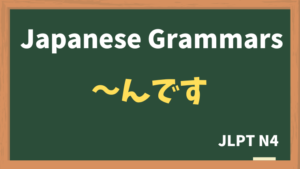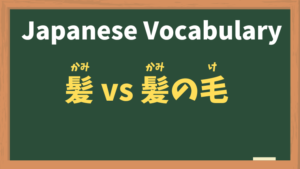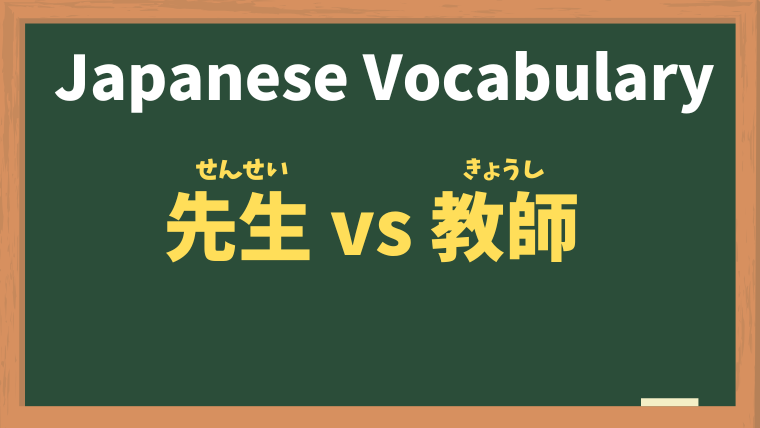
Contents
1. Introduction
In Japanese, two words commonly translated as "teacher" are 「先生」 (sensei) and 「教師」 (kyōshi). Both words refer to teaching professionals, but their nuances and proper contexts differ. In this article, we’ll explore when to use each term and how they reflect Japanese cultural norms, helping learners communicate naturally and respectfully.
2. Key Differences between 「先生(せんせい)」 and 「教師(きょうし)」
1. Both Terms Can Describe a Teaching Profession
Both 「先生」 and 「教師」 can be used to refer to a teacher in a professional context. However, there are distinctions in formality and usage depending on the context.
Examples:
- 「わたしは 日本語の 先生です。」 — "I am a Japanese language teacher."
- 「わたしは 日本語の 教師です。」 — "I am a Japanese language teacher."
2. Direct Address: Only 「先生」
When addressing someone directly, 「先生」 is appropriate. It is used in the same way that English speakers would use "Mr.," "Ms.," or "Dr." to show respect. In contrast, 「教師」 is not used to address someone directly and would sound unnatural.
Examples:
- ⭕️「先生、おげんきですか?」 — "Sensei, how are you?"
- ❌「教師、おげんきですか?」 — "Kyōshi, how are you?" (unnatural)
3. Use of 「先生」 with Other Professionals
The term 「先生」 is also used to respectfully address other specialists, including doctors, politicians, and writers. While it’s common to call these professionals 「先生」, 「教師」 is specific to schoolteachers and cannot be used for other professions.
Examples:
- Dr. Tanaka — 田中先生
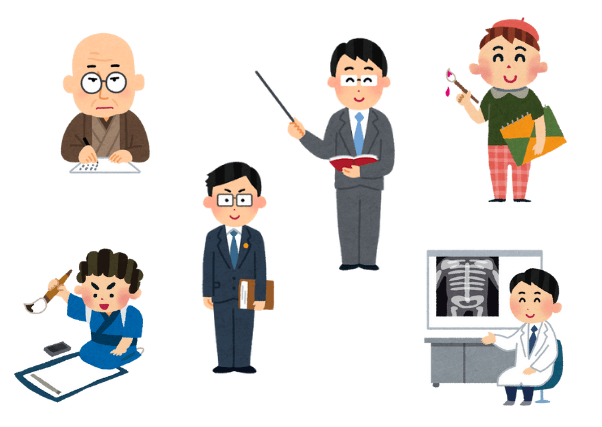
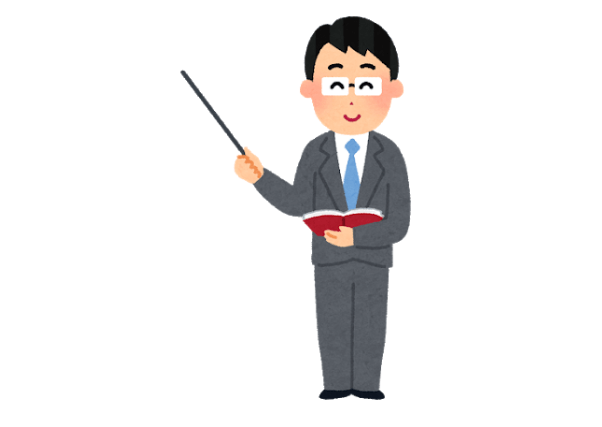
3. Summary Chart of 「先生」 vs. 「教師」 Usage
| Aspect | 先生 | 教師 |
|---|---|---|
| Job title | Can refer to a teacher | Can refer to a teacher |
| Direct address | Yes | No |
| Other professionals | Yes, includes doctors, writers, etc. | No, limited to teaching profession |
4. Choosing the Right Term: Practical Tips
To help choose between 「先生」 and 「教師」, here are some guidelines:
- Use 「先生」 when speaking to or about a teacher directly, or when addressing other professionals (doctors, politicians, etc.).
- Use 「教師」 when describing a person’s teaching profession formally or in a third-person, official context (like in a job description).
5. Conclusion
Understanding the difference between 「先生」 and 「教師」 can enrich your Japanese, helping you navigate respectful language and professional titles. With these distinctions, you can confidently show respect to teachers, doctors, and other professionals.

